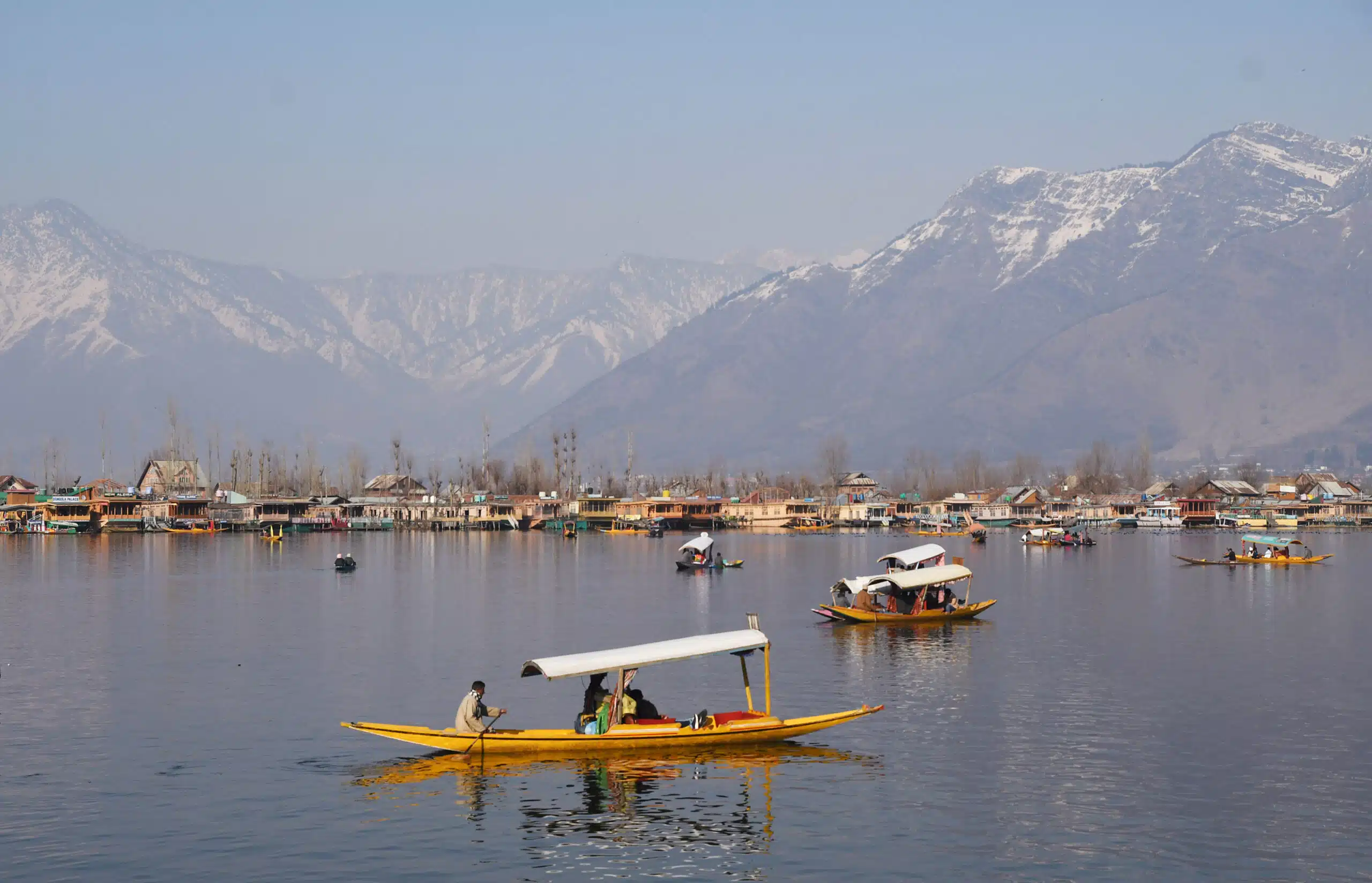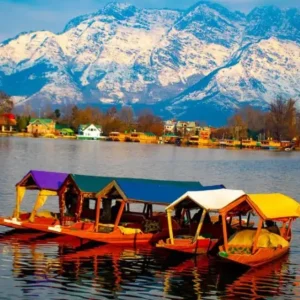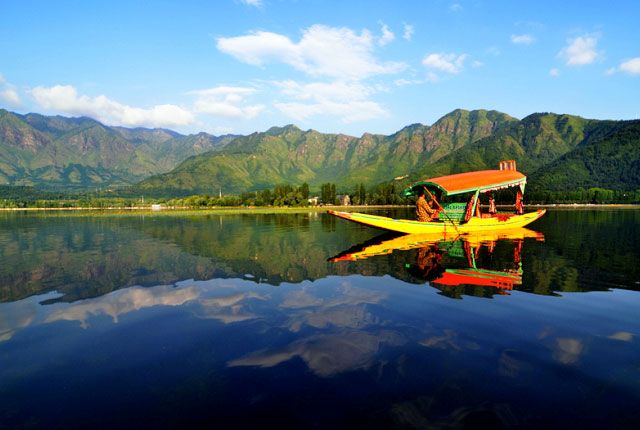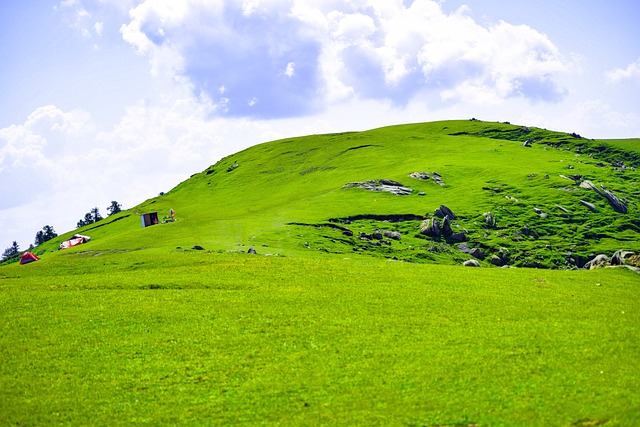
Best Places to See on a Dal Lake Shikara Ride
Table of Contents
ToggleOverview
Embarking on a Dal Lake Shikara ride is one of the most enchanting experiences in Srinagar, the summer capital of Jammu and Kashmir. Gliding over the mirror-like waters aboard a traditional Shikara, you’ll discover floating markets, lush gardens, ancient monuments, vibrant houseboats, and serene islands, all against the backdrop of the majestic Himalayas. This immersive Shikara tour along Dal Lake isn’t merely a boat trip—it’s a journey into the heart of Kashmir’s culture and natural beauty. In this comprehensive guide, you’ll explore the best places to see on a Dal Lake Shikara ride, learn insider tips on booking your Shikara excursion, and discover how to make the most of your time on these tranquil waters.




What Is a Dal Lake Shikara Ride?
A Shikara is a wooden Kashmiri boat, traditionally elaborately carved, equipped with cushioned seats and a canopy to provide protection from the elements. Shikara cruises on Dal Lake are the apogee of being one with the local lifestyle on the lake—villagers hawking fresh vegetables and fruits from their boats, artisans making papier-mâché souvenir items, and residents of houseboats greeting you as you go by. Your Shikara tour can take anywhere from an hour’s sneak peek at the Floating Vegetable Market to an outing of a day checking out the most mythological places on the lake.
Best Time for Your Shikara Tour
Schedule your Shikara trip between Srinagar’s tourist season (April to October) to have warm weather, thick vegetation, and blue skies. Early morning periods (7–9 AM) are best to photograph sunrise over Dal Lake and see the Floating Market with boats rowing in full of fresh fruits, vegetables, and flowers. Sunset cruises with golden sunlight (5–7 PM) also capture a misty glow that wraps around the surrounding lotus flowers and snow-capped peaks.
Best Dal Lake Shikara Ride places to visit
- Floating Vegetable Market
At sunrise, Floating Vegetable Market is a brilliant display of wooden boats stacked full of tomatoes, beans, apples, and so forth. Farmers from surrounding villages sail into the center basin to unload their morning harvest. Clever tourists can negotiate for fresh vegetables and fruits as they take Instagram-perfect shots of the lively scene. The market is a great glimpse into the everyday life of Dal Lake and one of the highlights of any Shikara tour.
- Floating Gardens and Lotus Fields
Just beyond the market, you’ll drift through emerald-green floating gardens—plots of water hyacinth and soil anchored together for flower cultivation. During summer, the lake transforms with blooming lotus and water lilies, creating a surreal panorama. Photographers and nature lovers alike flock here to capture the delicate pink and white petals reflecting on the placid water.
- Char Chinar Island
Char Chinar, or “Four Chinar,” is a tiny island topped by four Chinar trees—Kashmir’s symbolic autumnal emblem. Reachable only by Shikara, this peaceful retreat is a short relief from the bustle of the lake. Scales a wooden ladder up onto the island platform to take bird’s eye shots of Dal Lake and nearby hills.
- Nehru Park
Dedicated to India’s first Prime Minister, Nehru Park is a man-made island constructed with gorgeous lawns, flower beds, and running tracks. A center pavilion is an ideal spot to soak in water lily clusters and view Shikaras passing by. Couples and families come to the park and alight here to have a picnic, making it a perfect mid-ride halt.
- Hazratbal Shrine
The white marble front of Hazratbal Shrine, which is in honor of the Prophet Muhammad, glows on the north shore of the lake. You can’t visit the shrine by boat, but you can dock close by to view its reflection and look over to the arched verandahs where the pilgrims congregate. Having this holy place adjacent to Shikara gives a divine essence to your Dal Lake tour.
- Shankaracharya Temple Overlook
Perched atop a rock hill, Shankaracharya Temple is visible from various points on Dal Lake. While the temple itself forms a sure uphill trek, the Shikara ride offers sightseeing of its white dome along with Shankaracharya Hill nearby. If you are adventurous, you can opt to moor at Raj Bhavan jetty, trek up, and then board your boat again.
- Srinagar Houseboat Heritage
No Shikara ride is ever complete without an overnight stay in a houseboat. These finely carved wooden boats—some dating back to the British period—float moored on the lake shores. A few of the Shikarawalas (boatmen) conduct escorted tours of the most flamboyant of houseboats, indicating comfortable bedrooms, cedar wood paneling carved out of them, and Kashmiri rugs. Try to spend the night in a heritage or luxury houseboat for an authentic lakeside experience.
- Floating Mosque at Chattabal
On the north arm of the lake stands the Chattabal Mosque, which appears to float as its white minarets rise above the water level. On your Shikara ride, pass by the steps of the mosque where the faithful descend for prayer. The mosque among the lotus pads is a beautiful photogenic spot.
- Tulip Garden Viewpoint (Seasonal)
Although the popular Indira Gandhi Memorial Tulip Garden occupies the eastern shore of the lake, you might catch a glimpse of the color display in April’s Tulip Festival during the Shikara ride. Although not on proper Dal Lake, some operators do offer a short ride and an eclectic boat-and-garden combo package, showing more than 1.2 million tulip bulbs in bloom.
Insider Tips for an Unforgettable Shikara Experience
- Negotiate Your Boat Ride Charge. Rates are approximately ₹600–₹800 per hour for three people, but that varies. Good-natured bargaining with local Shikarawalas is worth it, particularly for extended tours.
- Package Boat Tours. Most do Floating Market, Char Chinar, and Nehru Park in a single-day package for a single price. Packaging is cheaper and guarantees you view all the highlights.
- Go Early to Beat the Crowds. For the most peaceful experience and glassy smooth reflections on Dal Lake, try the first ride of the day. Late mornings are busy, particularly around the Floating Market.
- Camera Basics. Apply a polarizing filter to cut down glare and increase contrast between water and lotus flowers. A waterproof camera bag or dry pouch keeps your equipment safe during splashy rides.
- Local Specialties on the Lake. Shikarawala halt at water stalls selling Kashmiri kahwa (saffron flavored green tea) and Sheermal (sweet bread). Drinking hot kahwa in the fresh breeze on the lake is pure bliss.
- Respect Local Traditions. Near religious sites like Hazratbal Shrine or Chattabal Mosque, dress discreetly and refrain from excessive noise. Do not litter and request permission in advance to take pictures of locals.
- Book Through Genuine Agencies. If advance bookings are your style, professional Srinagar travel agencies and top hotels can organize private Shikara tours with experienced guides and safety certifications.
Sample Itinerary: Full-Day Shikara Expedition
Time | Activity |
7:00 AM | Embark at Nehru Park jetty for sunrise Shikara ride |
7:30 AM | Explore the Floating Vegetable Market and barter for spices |
8:00 AM | Drift through lotus fields and floating gardens |
9:00 AM | Dock at Char Chinar for photos and quiet reflection |
10:00 AM | Return to main lake, pause near Hazratbal Shrine for views |
11:00 AM | Tea break at floating stall—savor Kashmiri kahwa |
12:00 PM | Tour heritage houseboats—discover carved cedar interiors |
1:00 PM | Lunch aboard: traditional Wazwan dishes served lakeside |
2:00 PM | Visit Chattabal Mosque’s floating minarets |
3:00 PM | Optional drive to Tulip Garden for seasonal blooms (April) |
4:30 PM | Golden hour cruise past Shankaracharya Hill |
5:30 PM | Return to shore; enjoy evening market stalls along the boulevard |
This Srinagar Shikara tour schedule guarantees you see each wonder of Dal Lake, from floating market to houseboat heritage and religious sites. Each stop guarantees why Shikara boat tour is the highly rated activity for tourists in Kashmir.
Safety and Sustainability on Dal Lake
As Dal Lake’s beauty calls, safety and accountability to the world must take precedence:
- Life Jackets and Boat Upkeep. Offer life jackets with your Shikarawala and maintain your boat well. A respectable operator will regularly check hulls, oars, and canopies.
- Eco-Friendly Methods. Avoid single-use plastics—use refillable water bottles and cloth bags. Properly dispose of trash only at collection points along the lakeshore.
- Promote Local Communities. Employ genuine Shikarawalas and buy handicrafts directly from artisans along the lake’s edge. Your support preserves traditional livelihoods and Kashmiri craft.
- Respect the Wild Life. Dal Lake provides a home to migratory birds including Black-headed Gulls and Great Crested Grebes. Avoid making noise where you spot them nesting and never feed the birds.
By taking an environment-friendly Shikara ride, you contribute to maintaining Dal Lake’s fine ecosystem for generations to come.
Devil Beyond the Ride: Uncovering Srinagar
Your Dal Lake Shikara trip is only the start of an in-depth exploration of Srinagar’s intricate weave. Post disembarking:
- Mughal Gardens. Visit the Shalimar Bagh and Nishat Bagh, where tiered lawns, sprinkler fountains, and chinar-shaded promenades bear testimony to the Mughal emperors’ horticultural passion.
- Old City Walk. Wander the busy narrow lanes of Srinagar’s Old Town, finding centuries-old mosques, bustling bazaars, and hidden restaurants offering rich Rogan Josh and Kebabs.
- Rajarani Temple. A short drive from there is this 9th-century brick temple, which symbolizes Kashmir’s distinctive temple architecture in forest settings.
- Local Handicraft Workshops. Take a tour of carpet-weaving mills to see artisans weaving the legendary Kashmiri Pashmina rugs strand by strand—a reflection of centuries of tradition.
Combining your Shikara ride with these land-based activities is a whole Srinagar tour package, knitting nature, culture, and history together.
Conclusion
A Dal Lake Shikara boat ride isn’t a boat ride in the classical sense—it’s a compassionate dip into the heart of Kashmiri living, topography, and culture.
From the dawn floating vegetable market to the serene Char Chinar beach during sunset, each moment on Dal Lake uncovers a new facet of Srinagar’s charm. By loaded with the most important places to visit, leveraging insider information, and incorporating strategic SEO terms such as “best Shikara ride,” “floating market Dal Lake,” and “Srinagar houseboat stay,” this blog is your guide to organizing an unforgettable Shikara adventure. Thus, make sure to book your next Srinagar holiday with a serene ride in a Shikara boat on Dal Lake at the top of your list. With you drifting through lotus flowers and heritage houseboats, you will see why this ancient practice remains so popular among visitors from around the world.
How to book Kashmir tour?
Contact a travel agency that specializes in Kashmir tours. You can reach out to the following for assistance:
- Phone:
- +91 7889 655596
- +91 7006 891267
- Email:
Inquire about tour packages, itineraries, and pricing, and confirm your booking for a memorable winter experience!
People Also Ask
What is a Dal Lake Shikara ride?
A Dal Lake Shikara ride is a traditional boat tour in Srinagar aboard a handcrafted wooden Shikara, offering serene views of floating markets, lotus fields, heritage houseboats, and Himalayan backdrops.
How much does a Shikara ride on Dal Lake cost?
Standard rates range from ₹600 to ₹800 per hour for up to three passengers, with negotiable packages available for full-day excursions covering major sights.
What is the best time for a Dal Lake Shikara ride?
Early mornings (7–9 AM) during April–October provide clear reflections, cooler temperatures, and the lively Floating Vegetable Market at its peak.
How long should a Shikara tour last on Dal Lake?
A 2–3 hour Shikara tour allows you to visit the floating market, Char Chinar, Nehru Park, and get panoramic views of Hazratbal Shrine and Shankaracharya Temple.
How do I book a Shikara ride in Srinagar?
You can book directly at Nehru Park jetty, through reputable Srinagar travel agencies, or via your hotel’s concierge for private and certified Shikara tours.
Can I visit the Floating Vegetable Market on Dal Lake?
Yes—most Shikara rides at sunrise include a stop at the Floating Vegetable Market where local farmers sell fresh produce directly from their boats.
Are life jackets provided on Dal Lake Shikaras?
Reputable Shikarawalas supply life jackets and maintain their boats regularly; always confirm safety equipment before departure.
What should I wear for a Shikara ride?
Light layers, a hat or scarf for sun protection, and comfortable footwear are recommended—plus modest attire when near religious sites like Hazratbal Shrine.
Is it safe to take a Shikara ride after sunset?
While sunset cruises (5–7 PM) are popular for golden-hour photography, ensure your operator has adequate lighting and life jackets for low-light conditions.
Can I combine a Shikara ride with a houseboat stay?
Absolutely—many visitors book overnight heritage houseboats on Dal Lake and include guided Shikara tours to explore floating markets and gardens.
What are the floating gardens on Dal Lake?
Floating gardens are rafts of water hyacinth and soil where locals cultivate lotus, water lilies, and vegetables, creating vibrant green patches on the lake’s surface.
How do I get to Char Chinar Island by Shikara?
Simply request your Shikarawala to cruise east of Nehru Park; Char Chinar is accessible only by boat and perfect for tranquil photo stops.
Can I see wildlife on a Dal Lake Shikara ride?
Yes—migratory birds like Black-headed Gulls and Great Crested Grebes frequent the lake, especially near lotus fields and floating gardens.
What is the Floating Mosque on Dal Lake?
Located at Chattabal, the white minarets of the floating mosque appear to rise directly from the water; Shikaras often pause nearby for photo opportunities.
Do Shikara tours include local snacks?
Many Shikarawalas stop at floating stalls selling Kashmiri kahwa (saffron tea) and Sheermal (sweet bread), adding a tasty cultural touch to your ride.
Are Shikara rides wheelchair accessible?
Due to wooden docks and narrow boat decks, Shikara rides are generally not wheelchair accessible; visitors with mobility needs should plan accordingly.
Can I negotiate Shikara ride prices?
Yes—polite bargaining with Shikarawalas is customary, especially for multi-hour rides or combined packages to floating market and Char Chinar.
What photography gear is best for a Dal Lake Shikara ride?
A camera with a polarizing filter, waterproof pouch, and a wide-angle lens will capture vibrant lotus fields, reflections, and panoramic lake vistas.
Is tipping expected for Shikarawalas?
Though not mandatory, a 10–15% tip for friendly, knowledgeable Shikarawalas is appreciated and supports local livelihoods.
Can I customize my Shikara itinerary?
Yes—most operators tailor routes to your interests, whether you prefer houseboat tours, sunrise market visits, or sunset cruises near Shankaracharya Hill.
What cultural etiquette should I follow on Dal Lake?
Dress modestly near religious sites, ask permission before photographing locals, and avoid littering to respect Kashmiri traditions and the lake’s ecosystem.
How do I reach Dal Lake from Srinagar airport?
Dal Lake is approximately 20 km from Sheikh ul-Alam Airport; taxis or hotel transfers take around 30–40 minutes via the Srinagar–Ganderbal Road.
Is there Wi-Fi on Shikaras or houseboats?
Premium houseboats often provide Wi-Fi; however, Shikaras do not have connectivity, making the ride a digital detox experience.
Can I book a private Shikara for proposals or events?
Yes—private Shikara tours can be arranged with floral decorations, candlelit setups, or champagne for special occasions on Dal Lake.
How can I support sustainable tourism on Dal Lake?
Choose eco-friendly operators, avoid single-use plastics, purchase handicrafts directly from artisans, and follow “leave no trace” practices during your Shikara ride.




